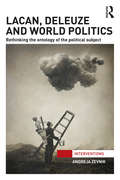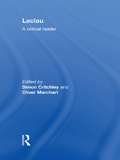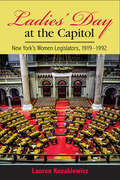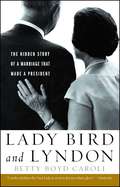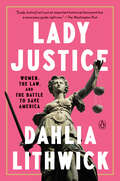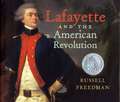- Table View
- List View
Labyrinth: The Pursuit of the Letelier Assassins
by Taylor Branch Eugene M. PropperInvestigation and prosecution of a car bombing which killed, among others, a Chilean Ambassador.
Lacan, Deleuze and World Politics: Rethinking the Ontology of the Political Subject (Interventions)
by Andreja ZevnikThis book aims to re-think the way in which the subject is inscribed in the modern political, and does so by exploring the potentiality of Lacano-Deleuzian theoretical framework. It concerns a different ontology and a non-dualist understanding of political and legal existence, by focusing on questions such as how to think alternative notions of political existence and what kind of political, social and legal order do these come to create. This investigation into political appearance of subjects through concepts of law, body and life is led and influenced by the thought of Gilles Deleuze and Jacques Lacan, as well as Alain Badiou, Antonio Negri and Slavoj Žižek. The book takes on various conceptualisations of life, explores the relationship between law and life and develops an alternative notion of legal and political existence in particular in the context of rights. On the back of Guantánamo’s legal and political discourses this work aims to show why and how the problems of world politics or the limitations of (human) rights discourse require an engagement with questions such as what it means to exist as a human being, what forms of life are politically recognised, which are not, and why this distinction. By pointing to a different ontology for thinking and understanding global politics and demonstrating how a trans-disciplinary and philosophical approaches can foster the debates in world politics, this book will be of interest to postgraduates and scholars working on critical normative ideas in international politics, critical security studies and critical legal studies.
Laclau: A Critical Reader
by Simon Critchley Oliver MarchartLaclau: A Critical Reader is the first full-length critical appraisal of Laclau's work and includes contributions from several leading philosophers and theorists. The first section examines Laclau's theory that the contest between universalism and particularism provides much of the philosophical background to political and social struggle, taking up the important place accorded to, amongst others, Hegel and Lacan in Laclau's work. The second section of the book considers what Laclau's 'radical democracy' might look like and reflects on its ethical implications, particularly in relation to Laclau's post-Marxism and thinkers such as Jürgen Habermas. The final section investigates the place of hegemony in Laclau's work, the idea for which he is perhaps best-known.This stimulating collection also includes replies to his critics by Laclau and the important exchange between Laclau and Judith Butler on equality, making it an excellent companion to Laclau's work and essential reading for students of political and social theory.
Lacuna: A Novel
by Fiona SnyckersThe traumatized central character of J.M. Coetzee’s Disgrace is provocatively reimagined in this “surprising, subtle, and deeply challenging” novel (Kirkus Reviews, starred review).Two years ago, Lucy Lurie was the victim of an act of sexual violence that devastated her life. Afterwards, she becomes obsessed with the author John Coetzee, whose acclaimed novel turned her brutal assault into a literary metaphor. Withdrawn and fearful of crowds, Lucy nonetheless makes occasional forays into the world of men in her search for Coetzee himself. She means to confront him.The Lucy in his novel, Disgrace, is passive and almost entirely lacking agency. Lucy means to right the record, for she is the lacuna that Coetzee left in his novel—the missing piece of the puzzle. Lucy plans to put herself back in the story, to assert her agency and identity. For Lucy Lurie will be no man’s lacuna. Lacuna is both a powerful feminist reply to the book considered to be Coetzee’s masterwork, and the moving story of one woman’s attempt to reclaim her identity after trauma.Winner of the Sala Novel AwardWinner of the Humanities and Social Sciences Award for the Novel
Ladies in Waiting
by Laura L. SullivanEliza dreams of being a playwright for the king's theater, where she will be admired for her witty turns of phrase rather than her father's wealth. Beth is beautiful as the day but poor as a church mouse, so she must marry well, despite her love for her childhood sweetheart. Zabby comes to England to further her scientific studies--and ends up saving the life of King Charles II. Soon her friendship with him becomes a dangerous, impossible obsession. Though she knows she should stay away from the young, handsome king, Charles has a new bride, Queen Catherine, and a queen needs ladies in waiting. And so Zabby, Beth, and Eliza, three Elizabeths from very different walks of life, find themselves at the center of the most scandal-filled court that England has ever seen.
Ladies of the Lights: Michigan Women in the U.S. Lighthouse Service
by Patricia Majher"A great read about some great ladies, Pat Majher'sLadies of the Lightspays long overdue homage to an overlooked part of Great Lakes maritime history in which a select group of stalwart women beat the odds to succeed in a field historically reserved for men. " ---Terry Pepper, Executive Director of Great Lakes Lighthouse Keeper's Association Michigan once led the country in the number of lighthouses, and they're still a central part of the mystique and colorful countryside of the state. What even the region's lighthouse enthusiasts might not know is the rich history of female lighthouse keepers in the area. Fifty women served the sailing communities on Lakes Huron, Michigan, and Superior, as well as on the Detroit River, for more than 100 years. From Catherine Shook, who raised eight children while maintaining the Pointe Aux Barques light at the entrance to Saginaw Bay; to Eliza Truckey, who assumed responsibility for the lighthouse in Marquette while her husband fought for four years in the Civil War; to Elizabeth Whitney, whose combined service on Beaver Island and in Harbor Springs totaled forty-one years---the stories of Michigan's "ladies of the light" are inspiring. This is no technical tome documenting the minutiae of Michigan's lighthouse specifications. Rather, it's a detailed, human portrait of the women who kept those lighthouses running, defying the gender expectations of their time. Patricia Majher is Editor ofMichigan Historymagazine, published by the Historical Society of Michigan. Prior, she was Assistant Director of the Michigan Women's Historical Center and Hall of Fame in Lansing, Michigan. In addition, she has been writing both advertising and editorial copy for almost thirty years and has been a frequent contributor to Michigan newspapers and magazines.
Ladies' Day at the Capitol: New York's Women Legislators, 1919-1992
by Lauren KozakiewiczLadies' Day at the Capitol integrates for the first time the history of New York's women lawmakers with the larger story of New York State politics. Through extensive research and interviews, Lauren Kozakiewicz documents New York women's actions as elected officials between 1919 and 1992 and explores how gendered ideas affected their careers and ability to represent women's voices in government. Ladies' Day at the Capitol offers a general framework for understanding the women's legislative careers over time while also providing a deeper look at key lawmakers' specific histories. The study broadens out to include chapters on creating representative organizations of women legislators and women's efforts to champion specific issues. It builds off earlier studies of state legislators that treated women in the aggregate. It complements other, more recent work that takes a state-centered approach to the history of the woman politician. It is unique in the degree to which chapters on New York's political history and women's efforts to win the vote in New York give the reader essential context for the historical analysis.
Ladrón de esperanzas
by Francisco Martín Moreno«La verdadera historia de México comenzaría con él... y acabaría con él.» Antonio M. Lugo Olea supo encender la imaginación y la esperanza de millones de mexicanos ofreciendo una lucha frontal contra la corrupción, la impunidad y la delincuencia organizada. También prometió hacer lo posible por terminar con la pobreza, la marginación y la injusticia. Los ciudadanos, hartos de gobiernos de ineptos y ladrones, con su voto llevaron a AMLO a la presidencia del país. Por si fuera poco, su partido también consiguió una avasalladora mayoría en el Congreso, vital para apoyarlo en todos sus proyectos. El máximo líder no puede fracasar. Se sabe un caudillo predestinado a construir una nueva nación, un iluminado cuya misión es no volver a robar la esperanza de los que menos tienen, un visionario constructor de oportunidades antes negadas. Pero su llegada al poder lo ha enfrentado con una realidad inflexible y terca. El presidente parece no darse cuenta de que va a necesitar algo más que buenos propósitos. ¿Qué suerte correrán los mexicanos que creyeron con fe ciega en la magia mística de sus palabras?
Ladrón de esperanzas
by Francisco Martín Moreno«La verdadera historia de México comenzaría con él... y acabaría con él.» Antonio M. Lugo Olea supo encender la imaginación y la esperanza de millones de mexicanos ofreciendo una lucha frontal contra la corrupción, la impunidad y la delincuencia organizada. También prometió hacer lo posible por terminar con la pobreza, la marginación y la injusticia. Los ciudadanos, hartos de gobiernos de ineptos y ladrones, con su voto llevaron a AMLO a la presidencia del país. Por si fuera poco, su partido también consiguió una avasalladora mayoría en el Congreso, vital para apoyarlo en todos sus proyectos. El máximo líder no puede fracasar. Se sabe un caudillo predestinado a construir una nueva nación, un iluminado cuya misión es no volver a robar la esperanza de los que menos tienen, un visionario constructor de oportunidades antes negadas. Pero su llegada al poder lo ha enfrentado con una realidad inflexible y terca. El presidente parece no darse cuenta de que va a necesitar algo más que buenos propósitos. ¿Qué suerte correrán los mexicanos que creyeron con fe ciega en la magia mística de sus palabras?
Lady Bird Johnson, That's Who!: The Story of a Cleaner and Greener America
by Tracy Nelson MaurerLady Bird Johnson, That's Who! is Tracy Nelson Maurer's lively picture book biography of Lady Bird Johnson, with a focus on her environmentalist passion and legacy as First Lady.Who fought to stop pollution? Who helped make America cleaner and greener? Lady Bird Johnson, That's Who!Claudia Alta Taylor was a lonely girl, shy as a butterfly growing up in Texas. She never dreamed she'd blossom into a visionary leader whose love for wildflowers, beautiful landscapes, and building community compelled her to lead the effort to combat pollution in the United States. A lifelong environmentalist, Lady Bird Johnson embraced her platform as First Lady to promote policy that beautified America’s roadways, waterways and parks, inspiring people to take pride in the places they live.With elements of women’s history, civics, and conservationism, this is a timely and informative picture book biography.
Lady Bird Johnson: Hiding in Plain Sight
by Julia SweigA magisterial portrait of Lady Bird Johnson, and a major reevaluation of the profound yet underappreciated impact the First Lady's political instincts had on LBJ’s presidency. <P><P>In the spring of 1964, President Lyndon B. Johnson had a decision to make. Just months after moving into the White House under the worst of circumstances—following the assassination of President John F. Kennedy—he had to decide whether to run to win the presidency in his own right. He turned to his most reliable, trusted political strategist: his wife, Lady Bird Johnson. The strategy memo she produced for him, emblematic of her own political acumen and largely overlooked by biographers, is just one revealing example of how their marriage was truly a decades-long political partnership. <P><P>Perhaps the most underestimated First Lady of the twentieth century, Lady Bird Johnson was also one of the most accomplished and often her husband's secret weapon. Managing the White House in years of national upheaval, through the civil rights movement and the escalation of the Vietnam War, Lady Bird projected a sense of calm and, following the glamorous and modern Jackie Kennedy, an old-fashioned image of a First Lady. In truth, she was anything but. As the first First Lady to run the East Wing like a professional office, she took on her own policy initiatives, including the most ambitious national environmental effort since Teddy Roosevelt. <P><P>Occupying the White House during the beginning of the women's liberation movement, she hosted professional women from all walks of life in the White House, including urban planning and environmental pioneers like Jane Jacobs and Barbara Ward, encouraging women everywhere to pursue their own careers, even if her own style of leadership and official role was to lead by supporting others. Where no presidential biographer has understood the full impact of Lady Bird Johnson’s work in the White House, Julia Sweig is the first to draw substantially on Lady Bird’s own voice in her White House diaries to place Claudia Alta "Lady Bird” Johnson center stage and to reveal a woman ahead of her time—and an accomplished politician in her own right. <P><P><b>A New York Times Best Seller</b>
Lady Bird and Lyndon: The Hidden Story of a Marriage That Made a President
by Betty Boyd CaroliA fresh look at Lady Bird Johnson that upends her image as a plain Jane who was married for her money and mistreated by Lyndon. This Lady Bird worked quietly behind the scenes through every campaign, every illness, and a trying presidency as a key strategist, fundraiser, barnstormer, peacemaker, and indispensable therapist.Lady Bird grew up the daughter of a domineering father and a cultured but fragile mother. When a tall, pushy Texan named Lyndon showed up in her life, she knew what she wanted: to leave the rural Texas of her childhood and experience the world like her mother dreamed, while climbing the mountain of ambition she inherited from her father. She married Lyndon within weeks, and the bargain they struck was tacitly agreed upon in the courtship letters they exchanged: this highly gifted politician would take her away, and she would save him from his weaknesses. The conventional story goes that Lyndon married Lady Bird for her money, demeaned her by flaunting his many affairs, and that her legacy was protecting the nation's wildflowers. But she was actually a full political partner throughout his ascent--the one who swooped in to make the key call to a donor, to keep the team united, to campaign in hostile territory, and to jumpstart him out of his paralyzing darkness. And while others were shocked that she put up with his womanizing, she always knew she had the upper hand. Lady Bird began the partnership by using part of her nest egg to help finance Lyndon's first political campaign. Over and over, she kept him from quitting, including the 1948 election when he was so immobilized with self-pity that she had to pick up the phone to solicit donations on his behalf. She was also the one who got him out of bed, when he was in a deep funk, to go to the 1964 Democratic nominating convention. In Lady Bird and Lyndon, Betty Boyd Caroli restores Lady Bird to her rightful place in history, painting a vivid portrait of a marriage with complex, but familiar and identifiable overtones.
Lady Caroline Lamb: A Free Spirit
by Antonia FraserThe vivid and dramatic life of Lady Caroline Lamb, whose scandalous love affair with Lord Byron overshadowed her own creativity and desire to break free from society's constraints.From the outset, Caroline Lamb had a rebellious nature. From childhood she grew increasingly troublesome, experimenting with sedatives like laudanum, and she had a special governess to control her. She also had a merciless wit and talent for mimicry. She spoke French and German fluently, knew Greek and Latin, and sketched impressive portraits. As the niece of Georgiana, Duchess of Devonshire, she was already well connected, and her courtly skills resulted in her marriage to the Hon. William Lamb (later Lord Melbourne) at the age on nineteen. For a few years they enjoyed a happy marriage, despite Lamb's siblings and mother-in-law detesting her and referring to her as "the little beast." In 1812 Caroline embarked on a well-publicised affair with the poet Lord Byron - he was 24, she 26. Her phrase "mad, bad and dangerous to know" became his lasting epitaph. When he broke things off, Caroline made increasingly public attempts to reunite. Her obsession came to define much of her later life, as well as influencing her own writing - most notably the Gothic novel Glenarvon - and Byron's. Antonia Fraser's vividly compelling biography animates the life of 'a free spirit' who was far more than mad, bad and dangerous to know.
Lady Death: The Memoirs of Stalin's Sniper
by Lyudmila Mykhailvna PavlichenkoLyudmila Pavlichenko was one of the most successful – and feared – female snipers of all time. When Hitler launched Operation Barbarossa in June 1941 she left her university studies to join the Red Army. Ignoring offers of positions as a nurse she became part of Soviet Russia’s elite group of female snipers. Within a year she had 309 confirmed kills, including 29 enemy sniper kills. Renowned as the scourge of German soldiers, she was regarded as a key heroic figure for the war effort and, in 1942, on Stalin’s personal orders, she travelled as part of a Soviet delegation to the West, fundraising in Canada, Great Britain and the USA. Dubbed ‘Lady Death’, she spoke out about gender equality in the Red Army and made the case for the USA to continue the fight against the Nazis in Europe. The folk singer Woody Guthrie wrote a song about her exploits – ‘Miss Pavlichenko’ – and she visited the White House, where she formed an unlikely but long-lasting friendship with Eleanor Roosevelt. In November 1942 she visited Coventry and accepted donations of £4,516 from Coventry workers to pay for three X-ray units for the Red Army. She also visited a Birmingham factory as part of her fundraising tour.
Lady Jane Grey: Nine Days Queen
by Alison PlowdenFor most, the name of Lady Jane Grey means the 'nine days queen', the child who was used as a pawn in the power politics of the Tudor realm by both her parents, the Suffolks, and Northumberlands. Alison Plowden's new book tells the tragic story of Jane's life, and death, but also reveals her to be a woman of unusual strength of conviction, with an intelligence and steady faith beyond her years. Told with Alison's usual skill and adeptness, this is a story which will stir compassion in the hearts of the hardiest readers. It also gives us insight into the least known of Henry VIII's wives, Katherine Parr.
Lady Justice: Women, the Law, and the Battle to Save America
by Dahlia LithwickDahlia Lithwick, one of the nation&’s foremost legal commentators, tells the gripping and heroic story of the women lawyers who fought the racism, sexism, and xenophobia of Donald Trump&’s presidency—and wonAfter the sudden shock of Donald Trump&’s victory over Hillary Clinton in 2016, many Americans felt lost and uncertain. It was clear he and his administration were going to pursue a series of retrograde, devastating policies. What could be done? Immediately, women lawyers all around the country, independently of each other, sprang into action, and they had a common goal: they weren&’t going to stand by in the face of injustice, while Trump, Mitch McConnell, and the Republican party did everything in their power to remake the judiciary in their own conservative image. Over the next four years, the women worked tirelessly to hold the line against the most chaotic and malign presidency in living memory. There was Sally Yates, the acting attorney general of the United States, who refused to sign off on the Muslim travel ban. And Becca Heller, the founder of a refugee assistance program who brought the fight over the travel ban to the airports. And Roberta Kaplan, the famed commercial litigator, who sued the neo-Nazis in Charlottesville. And, of course, Stacey Abrams, whose efforts to protect the voting rights of millions of Georgians may well have been what won the Senate for the Democrats in 2020. These are just a handful of the stories Lithwick dramatizes in thrilling detail to tell a brand-new and deeply inspiring account of the Trump years. With unparalleled access to her subjects, she has written a luminous book, not about the villains of the Trump years, but about the heroes. And as the country confronts the news that the Supreme Court, which includes three Trump-appointed justices, will soon overturn Roe v. Wade, Lithwick shines a light on not only the major consequences of such a decision, but issues a clarion call to all who might, like the women in this book, feel the urgency to join the fight. A celebration of the tireless efforts, legal ingenuity, and indefatigable spirit of the women whose work all too often went unrecognized at the time, Lady Justice is destined to be treasured and passed from hand to hand for generations to come, not just among lawyers and law students, but among all optimistic and hopeful Americans.
Lady Lollipop
by Dick King-SmithThe author of Babe, The Gallant Pigoffers another winner with this tale of a bright pig and her canny young keeper 'training' a spoiled princess. Lollipop is no ordinary pig. According to her young trainer, Johnny Skinner, she's the smartest pig in the entire kingdom. When people stare into Lollipop's bright, intelligent eyes, it somehow changes them for the better. But can Lollipop win over the spoiled Princess Penelope - and her not-so-pig-friendly parents, the King and Queen? Dick King-Smith's tale about a special pig - and some memorable humans, too - will delight his legions of loyal fans!
Lady Macbeth's Daughter
by Lisa KleinRaised by three strange sisters, Albia has never known the secrets of her parentage. But when Macbeth seeks out the weird sisters to foretell his fate, his life is entangled with his unknown daughter's. When Albia foresees the terrible future, she becomes determined to save Macbeth's rival--and the man she loves--from her murderous father. Klein's seamlessly drawn tale makes it seem impossible that Albia was not part of Shakespeare's original play.
Lady Trevelyan and the Pre-Raphaelite Brotherhood
by John BatchelorAn entertaining account of an extraordinary cultural and historical event: - the establishment by one highly intelligent woman of a salon of the arts in a beautiful country house in Northumberland. Wallington Hall was remote from the major centres of artistic activity, such as London and Edinburgh. Yet Pauline Trevelyan single handedly made it the focus of High Victorian cultural life. Among those she attracted into her orbit were Ruskin, Swinburne, the Brownings, the Rossettis (Dante Gabriel, Christina and William Michael), Carlyle, and Millais and other members of the Pre-Raphaelite Brotherhood.The penniless but clever daughter of a clergyman, Pauline Jermyn married an older man whom she met through a shared passion for geology. Sir Walter Trevelyan was a philanthropist, teetotal, vegetarian, pacificist ... and very rich. With his encouragement, she collected works of art and decorated Wallington Hall with a cycle of vast paintings on the history of Northumberland. She was a patron of the arts who provided a fostering environment for many of the geniuses of her day. After her death, Swinburne wept every time her name was mentioned.
Lady in Red: An Intimate Portrait of Nancy Reagan
by Sheila TateLady in Red is the long-awaited collection of behind-the-scenes stories and iconic images of one of the most influential First Lady in modern history -- Nancy Reagan. Lovingly compiled by long-time close confidante and aide, Sheila Tate, the book provides a rare and much-anticipated look into the personal life of the president's wife, from her daily routines and travels as First Lady to her friendships and deep influence in the Reagan White House.Lady in Red depicts a nuanced portrait of this graceful yet strong woman who felt it was her mission to restore a sense of grandeur, mystique, and excitement to the presidency, showcasing the various roles that Mrs. Reagan played during her years in the White House, that of Wife, Mother, Protector, Host, Diplomat, and Advisor, among others. The book also features twenty-four pages of gorgeous color photographs, including "Nancy's Album," a collection of Mrs. Reagan's favorite photographs, which she entrusted to Sheila to share with the world after she and her beloved Ronnie had passed.To complete the portrait, Lady in Red includes interviews with the friends and politicians who knew Mrs. Reagan best: President George H. W. Bush, Chris Wallace, James Baker, Ed Meese, Maureen Dowd, and Marlin Fitzwater share their most cherished memories of the First Lady.
Lady in Waiting: My Extraordinary Life in the Shadow of the Crown
by Anne Glenconner<P><P>An extraordinary memoir of drama, tragedy, and royal secrets by Anne Glenconner--a close member of the royal circle and lady-in-waiting to Princess Margaret. As seen on Netflix's The Crown.Anne Glenconner has been at the center of the royal circle from childhood, when she met and befriended the future Queen Elizabeth II and her sister, the Princess Margaret. Though the firstborn child of the 5th Earl of Leicester, who controlled one of the largest estates in England, as a daughter she was deemed "the greatest disappointment" and unable to inherit. <P><P>Since then she has needed all her resilience to survive court life with her sense of humor intact. A unique witness to landmark moments in royal history, Maid of Honor at Queen Elizabeth's coronation, and a lady in waiting to Princess Margaret until her death in 2002, Anne's life has encompassed extraordinary drama and tragedy. <P><P>In Lady in Waiting, she will share many intimate royal stories from her time as Princess Margaret's closest confidante as well as her own battle for survival: her broken-off first engagement on the basis of her "mad blood"; her 54-year marriage to the volatile, unfaithful Colin Tennant, Lord Glenconner, who left his fortune to a former servant; the death in adulthood of two of her sons; a third son she nursed back from a six-month coma following a horrific motorcycle accident. <P><P>Through it all, Anne has carried on, traveling the world with the royal family, including visiting the White House, and developing the Caribbean island of Mustique as a safe harbor for the rich and famous-hosting Mick Jagger, David Bowie, Raquel Welch, and many other politicians, aristocrats, and celebrities. With unprecedented insight into the royal family, Lady in Waiting is a witty, candid, dramatic, at times heart-breaking personal story capturing life in a golden cage for a woman with no inheritance. <P><P><b>A New York Times Bestseller</b>
Lady, Be Bad (The Mike Shayne Mysteries)
by Brett HallidayPolitics make strange bedfellows—and many dead men—in this hardboiled mystery featuring Miami&’s Mike Shayne, irresistible playboy and unstoppable PI. Mike Shayne is leaving the sun and sand of Miami behind for the convoluted politics of Tallahassee. A bill to legalize gambling is on the table, and Shayne&’s been asked to testify against it, due to his experience investigating Las Vegas casinos. He has no idea that the odds are against him surviving the next twenty-four hours . . . One kidnapping attempt later, and Shayne has the feeling that someone is trying to sideline him. There&’s a lot of money to be won or lost, depending on the outcome of the vote, and those on both sides of the gambling issue aren&’t going down without a fight, drawing Shayne into a violent eruption of bribery, blackmail, extortion, assault, arson, and murder. And for every desperate man in the mix, there&’s a woman willing to use her deadly wiles to draw Shayne in, and take him out . . . &“The hard-drinking, hard-fisted, quick-thinking private eye!&” —Dayton Journal-Herald
Lafayette and the American Revolution
by Russell FreedmanWhen the Marquis de Lafayette ran off to join the American Revolution, he was a strong-willed nineteen-year-old who had never set foot on a battlefield. He was also one of the richest men in France. Determined to prove his mettle, he defied his family and even the king of France with his actions. Although at first Lafayette was granted an honorary commission out of deference for his title and wealth, he quickly earned the respect of his fellow officers with his courage, devotion to liberty, and unstoppable drive. He joined Washington during the difficult winter at Valley Forge and won the first president's lifelong friendship. Playing a pivotal role in the conflict, Lafayette persuaded the French government to send troops and ships as reinforcements for the Americans, negotiated crucial pacts with the Iroquois Six Nations, and helped lead troops to victory at Yorktown. Russell Freedman's thrilling account tells the story of an adventurer who made history before he was even out of his teens.<P><P> Winner of the Sibert Honor
Laid Back in Washington
by Art Buchwald"Who is that man in the white hat on the palomino horse riding down Pennsylvania Avenue?" the lady asked. "That's Art Buchwald, who's come to town to help rid President Reagan of fraud, waste and corruption in the government." "What's that on his hip?" "That's a Smith-Remington typewriter. Buchwald has the reputation for being the fastest hunt-and-peck man in the East. I've seen him hit three congressmen with one paragraph, at 100 yards." "He sure looks laid back in the saddle." "Don't let that trick you. He's picked up the California style ever since the Reagans moved into the White House. Nobody messes with him when he's looking for a column. He's taken on six Presidents, eight Vice Presidents, the FBI, the CIA, and the entire Department of Energy in his time." "He looks awfully fat for a gunslinger." "That's what fools most people. Under that soft underbelly is a thin hostile man screaming to get out." "Where's he going now?" "Heaven only knows, but I would hate to be anywhere near him when he pulls out his Smith-Remington and starts shooting up the town." "How can he tell the bad guys from the good guys?" "He works under the assumption that there( are no bad guys in Washington-only good guys doing bad things." "I guess we can all sleep better knowing he's here." "You can say that again. He's the only one who can save us from ourselves." "Oh my God, he just fell off his horse." "That's just a trick of his so no one in Washington will take him seriously." Following in the profoundly unserious spirit of Down the Seine and Up the Potomac and The Buchzvald Stops Here, Laid Back in Washington leaves no turn unstoned, but no feelings hurt for long. In this dazzling yet dizzy portrait of the new Washington, Art Buchwald not only reveals himself as the master chronicler of our leaders' foibles, but as a sophisticated wit in the elegant tradition of Oscar Wilde and Snoopy.

